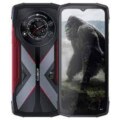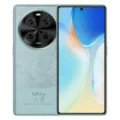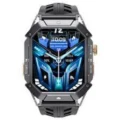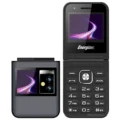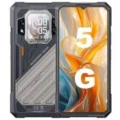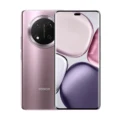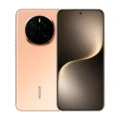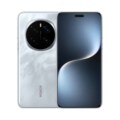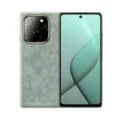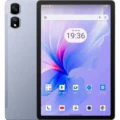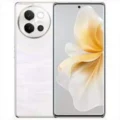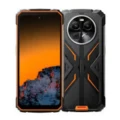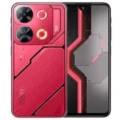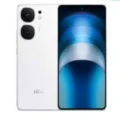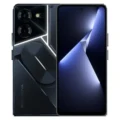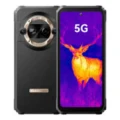Cubot KingKong Power 3
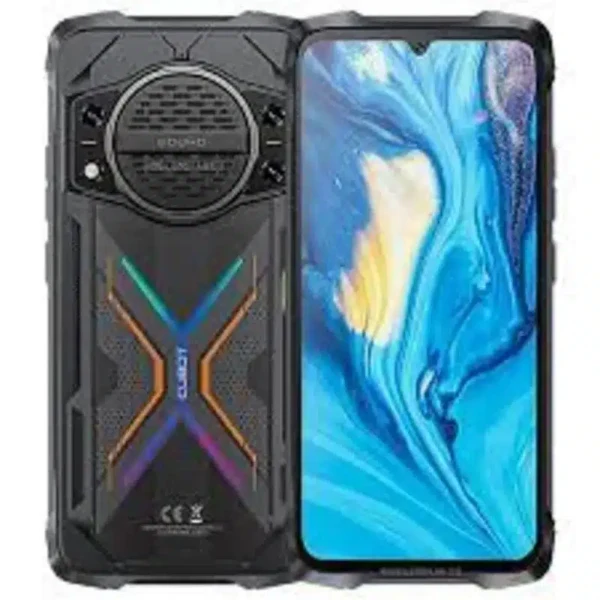


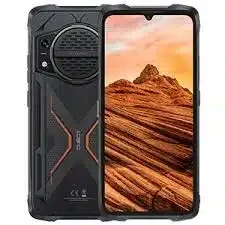
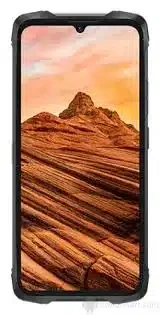
- : 12GB RAM MT8781
- : 6.72" 1080x2408 pixels
- : 10200mAh 33W
- : 100MP 1080p
The Cubot KingKong Power 3 is a rugged smartphone designed for outdoor enthusiasts and users needing extreme durability. With a 6.5-inch FHD+ display, this device offers clear visuals and impressive brightness, ensuring excellent readability even under direct sunlight, ideal for navigation or multimedia on the go. Powered by a MediaTek Helio processor paired with 8GB of RAM, it handles multitasking smoothly and provides a responsive user experience.
The KingKong Power 3 features a robust dual-camera system with a 48MP main lens, allowing users to capture high-quality images and videos in diverse environments. Its night mode and macro capabilities make it versatile for various shooting conditions. Additionally, the front-facing camera ensures sharp selfies and video calls, making it a reliable choice for both work and adventure.
Built with a massive battery, the Power 3 supports long hours of continuous usage, and with fast-charging capabilities, you’re ready for action quickly. The rugged, waterproof, and shockproof design, along with IP68/IP69K certification, means it can withstand extreme conditions, from rain to dust. The Cubot KingKong Power 3 is ideal for outdoor adventurers, field workers, and anyone needing a durable, high-performing smartphone.
Want to Learn More?
Visit the official website of Cubot for detailed information about the Cubot KingKong Power 3: Cubot Official Website
Still Unsure?
If you’re still unsure about your choice, explore other options from Cubot at your nearest store: Cubot Store
Specs
Network
| 2G Network GSM 850 / 900 / 1800 / 1900 - SIM 1 & SIM 2 (dual-SIM) CDMA 800 / 1900 |
GSM 850 / 900 / 1800 / 1900 - SIM 1 & SIM 2 |
| 3G Network | HSDPA 800 / 850 / 900 / 1700(AWS) / 1900 / 2100 |
| 4G Network | 1, 2, 3, 4, 5, 7, 8, 12, 13, 17, 18, 19, 20, 28, 38, 40, 41, 66 |
| Speed | HSPA, LTE |
LAUNCH
| Announced | September, 2026 |
| Status | Available. Released 2024, October |
BODY
| Dimensions | 175.3 x 82.7 x 20 mm (6.90 x 3.26 x 0.79 in) |
| Weight | 425 g (14.99 oz) |
| SIMs SIM (Subscriber Identity Module) is a small card that contains mobile network subscriber's account information. This allows the phone using the card to attach to a mobile network. The SIM card is most commonly associated with GSM and UMTS mobile networks. Moving a SIM card from one phone to another allows a subscriber to switch mobile phones without having to contact their mobile network carrier. SIM cards can also be used by a phone to store limited amounts of data, such as phone numbers and text messages. |
Hybrid Dual SIM (Nano-SIM, dual stand-by) IP68/IP69K dust/water resistant (up to 1.5m for 30 min) MIL-STD-810H compliant LED stripes on the back (music/notice/calls) |
Display
| Display Type Display Technology => A number of display technologies and types used in mobile phones => TFT (Thin Film Transistor), IPS (In-Place Switching), OLED (Organic Light Emitting Diode), AMOLED (Active-Matrix Organic Light-Emitting Diode), Super AMOLED (an even advanced version of AMOLED), Resistive Touchscreen (Resistive touchscreens contain two layer of conductive material with a very small gap between them which acts as a resistance), Capacitive Touchsceen (Capacitive touchscreen technology consists of a layer of glass coated with a transparent conductor) | IPS LCD, 120Hz |
| Size | 6.72 inches, 108.8 cm2 (~75.0% screen-to-body ratio) |
| Resolution | 1080 x 2408 pixels, 20:9 ratio (~393 ppi density) |
PLATFORM
| Operating System OS => Every computer system run on a base software called Operating System (OS). Operating System controls all basic operations of the computer (such as smartphone, PDAs, tablet computers and other handheld devices). The Operating System allows the user to install and run third party applications (apps), apps are used to add new functionality to the device. | Android 14 |
| Chipset Chipset is a group of integrated circuits designed to perform one or a more dedicated functions, often with real time computing constraints, Popular smartphones are equipped with more advanced embedded chipsets that can do many different tasks depending on their programming. | Mediatek MT8781 |
MEMORY
| Card Slot Memory Card Slot is a special slot for inserting a memory card. Memory cards allow you to expand the phone's built-in memory, A memory card (sometimes called a flash memory card or a storage card) is a small storage medium used to store data such as text, pictures, audio, and video, for use on small, portable or remote computing devices such as mobile phones, mp3 players, digital cameras. | microSDXC (uses shared SIM slot) |
| Internal | 256GB 12GB RAM |
MAIN CAMERA
| Cameras Specs Today’s smartphones come equipped with a very comprehensive set of camera related specifications. Our smartphone, for many of us, has become our primary camera due to it being the one we always have with us. |
100 MP, (wide), PDAF 5 MP, (macro) |
| Video | Yes |
| Camera Features | LED flash |
SELFIE CAMERA
| Cameras Specs Today’s smartphones come equipped with a very comprehensive set of camera related specifications. Our smartphone, for many of us, has become our primary camera due to it being the one we always have with us. |
32 MP |
| Video | Yes |
SOUND
| Loudspeaker | Yes (123-decibel) |
| 3.5mm jack | No |
COMMS
| WLAN |
Wi-Fi 802.11 a/b/g/n/ac, dual-band |
| Positioning |
GPS, GALILEO, GLONASS, BDS |
| Bluetooth Bluetooth is a wireless communications technology for exchanging data between mobile phones, headsets, computers and other network devices over short distances without wires, Bluetooth technology was primarily designed to support simple wireless networking of personal consumer devices. | 5.2, A2DP |
| Infrared Infrared connectivity is an old wireless technology used to connect two electronic devices. It uses a beam of infrared light to transmit information and so requires direct line of sight and operates only at close range. | |
| USB | USB Type-C, OTG |
| NFC NFC (Near field communication) is a set of standards for smartphones and similar devices to establish peer-to-peer radio communications with each other by touching them together or bringing them into proximity, usually no more than a few inches. | |
| Radio |
Features
| Sensors Sensors are electronic components that detects and responds to some type of input from the physical environment. The specific input could be light, heat, motion, moisture, pressure and location, The output is generally a signal that is converted to use in computing systems, a location sensor, such as a GPS receiver is able to detect current location of your electronic device. |
Fingerprint (side-mounted), accelerometer, gyro, proximity, compass |
BATTERY
| Battery Type Battery Type => Cell phones run on various kinds of batteries depending on the manufacturer, phone size or shape and features. There are basically four types of cell phone batteries => Lithium Polymer, Lithium Ion, Nickel Metal Hydride and Nickel Cadmium. | Li-Ion (Lithium Ion) |
| Charging The functionality responsible for recharging batteries in portable devices, such as mobile phones, significantly influences both battery lifespan and the practicality of daily product usage.The charging process, encompassing factors like voltage, current, and completion actions, is contingent upon the battery's size and type.Contemporary battery chargers dynamically adjust charging parameters based on the battery's current charging state. Charging an empty battery poses no safety risk, allowing for a quicker charging process. Consequently, many charging speed benchmarks, including ours, specify the battery level achieved after a 30-minute session on an empty battery.Standard chargers with a power output of 5V/1A, equivalent to 5W, serve as a baseline, with anything surpassing this speed classified as quick or fast charging. | 33W wired Reverse wired |
MISC
| Colors |
Black |
| Price | $ 159.49 |
TESTS
Reviews
Disclaimer Note
We strive to maintain accurate and up-to-date content on our website for general information purposes only. Please refrain from using the material for business, legal, or any other decisions.


